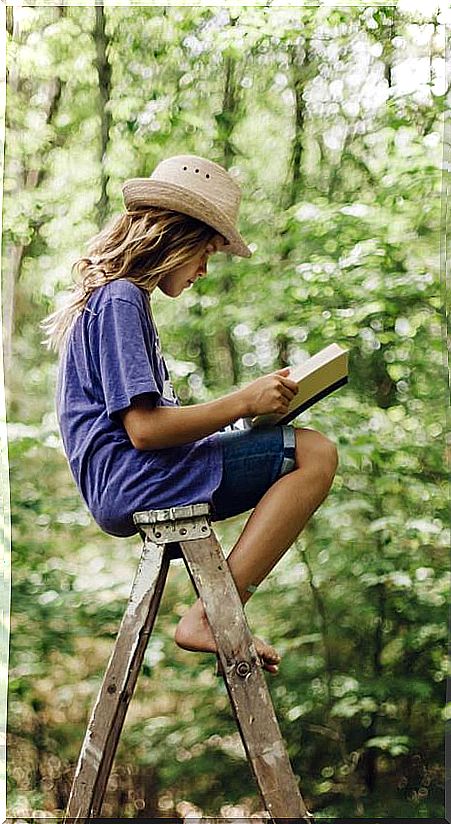Homework In Quarantine: 6 Questions You Should Ask Yourself
This quarantine can be an opportunity for schools and families to give children and youth a new chance and, instead of burdening them with homework, we give them back what we had stolen from them: the illusion, desire and interest in what is truly important.

Many families are faced with endless afternoons of their children’s homework throughout the year. However, with confinement, there are even more mothers and fathers who suffer daily from the reality of persecuting and forcing their children to comply with the demands of the school.
It is then that they feel even more closely the absurd and nonsensical reality that their children live daily, where learning becomes a mere procedure, disconnected from what those boys or girls really need or are interested in at that time. Homework becomes something to do to be left alone.
This quarantine is a perfect opportunity to ask ourselves (both schools and families) how we could give back to children and young people the illusion, the desire to learn and the interest in what is truly important to them. To reflect on this, now that we have time, we can ask ourselves some important questions.
1. Where was the desire to learn?
The educational system is full of children who entered with great curiosity and who leave apathetic, stressed and unmotivated. Not wanting to pick up a book or search for information or videos about things they want to learn.
Why is this happening? Isn’t it a terrible thing? The problem is not in children, but in an educational system that distrusts childhood, that has forgotten that human beings are naturally curious.
We generate the problem when we adults systematically decide what it is that they need or should learn and thus we achieve that they stop giving value, or have time, to investigate about what they do or would be interested in …
The educational system does not realize that by dint of telling each child what they have to learn, it makes them no longer want to learn it. Not that, not many other things.
2. What were the children spending their time before quarantine?
For some of the people who have invested and mortgaged a large part of our childhood and youth within the four walls of a school or institute, we do not have the accounts between what we have invested and what we have earned. We give away much of our precious present time in exchange for the promise of a better future. And now we realize that not only was it priced too high, but on many occasions the promise was not kept.
But it is that in addition to those valuable hours and hours that will not return from our lives – in which sitting and sitting for a long time, we learned to fulfill the objectives of others, to disregard the messages of our bodies, to compare ourselves with others and to judge ourselves severely. very well … – we have to add those other invisible, daily hours of homework.
Are you aware that all that time you spent filling in or answering questions that did not interest you and that probably still do not interest you?
Day after day we train childhood to be “a good adult” capable of doing a lot of things that neither interest them nor are passionate about them… Because it is their turn, because it is what is expected of him or her. In the end, it is a perfect training for what many adults experience in their working lives …
3. Are the interests and needs of the little ones being taken into account?
What if as children we had been able to immerse ourselves in what truly motivated us? What would happen if the educational system focused on supporting the interests of children, and not the other way around?
The reality is that, although the traditional school does not see it, we do not all need to learn the same things, not even at the same time … Hopefully the school, instead of cutting us all to fit into predetermined molds, knows how to be next to each kid.
Our society continues to need creative, passionate and happy adults! You do not need people who are used to not giving value to what does have it.
Each child comes standard with an internal learning program, guided from their intrinsic motivation, which has a lot to do with their characteristics and gifts for the world, but also with what makes them truly happy. Not all of us need to go through the same predetermined path uniformly, but in that forced journey we make – dramatically – many young people come out disconnected from themselves and from listening to their body or their heart. Without knowing who they are or what they are passionate about.
4. Is doing nothing “wasting time”?
Every human being needs freedom and time to invest in his own affairs. In the case of childhood it is even more vital. But this society does not support children, youth, or adults “wasting time.”
We think, with all good intentions, that we adults know better than children themselves what it is convenient for them to learn or do with their lives. So we fill in and guide their time “so that they learn more”, “so that they will be someone of benefit in the future” …
In reality, every pause, every moment of emptiness or of doing nothing, every moment of “boredom” is tremendously fertile. Childhood (also our creative part as adults) needs to be able to have time to dedicate to the fertile “nothing”.
It is right there where our internal learning program, our true roadmap, whispers to us what to do next. But if we fill the available time for children with homework and screens, we systematically anesthetize that valuable inner guide.
5. Is homework useful for you?
Homework is “homework”, not optional proposals, suggestions, or invitations. And so they make anything interesting boring, tedious, and even hateful. Because we are forcing the child to devote his attention and time to something that right now he simply has not asked. You are not interested now, perhaps following your own interest you will find it later. Or maybe not. And nothing happens. We don’t all know everything.
- Homework is not used to learn something involving neither the body nor the emotions. They are used to spend even more hours sitting, to please the goals of others.
- Homework saturates the child with demands from the outside and helps to stop him wanting to continue investigating on his own in his own interests. They are averse to feeding curiosity. They kill her.
- Homework steals free time to play games or to meet and connect with other people. They are contrary to coexistence.
- Homework robs children of time and energy to spend it on what gives them the most pleasure and joy … Homework neglects their real needs.
- Homework turns the little family time shared into reproaches, stress and conflicts … Especially because adults, unfortunately, have been trained since childhood to fulfill the objective, to finish the entire task, no matter how boring and meaningless it may be.
- Homework becomes something to be handed over to please the adult. And where real, meaningful learning is not at the center, it is not what is truly important. The protagonist is not the child, nor is their uniqueness, their diversity or what they want to contribute to the world promoted.
6. What can we do during quarantine in the face of this dramatic scenario?
We are facing an uncertain time in our lives, where the really important thing will be to regain a certain emotional balance and joy. So let’s take care of childhood together.
- Let’s protect free play and time spent on your own business.
- Let’s limit screen time, it is a clear disruptor of the genuine interests of childhood.
- Let us propose to our children’s school that it be flexible and broad enough in its proposals to offer all children options with which they connect more.
- If our son no longer shows curiosity about anything, let us allow a necessary time of detoxification of demands from the outside until genuine, real interests that he is passionate about spring up again …
- Let’s avoid comments such as: “that is not going to be of any use to you in life”, “that is not important”, when they show us their interest in something socially considered of little value: drawing, art, photography, music …
- Let’s spend time together, relaxed, without spending it to do homework, chatting about their interests and accompany them on their adventures no matter how absurd and nonsensical they may seem.
- Let us accompany him in his discoveries and investigations only as far as our son wants. Without trying to lengthen, or stretch or take advantage of the fact that you feel interested in something, to strain other concepts or learnings. As in eating … each extra spoonful only negatively interferes with your taste for eating.
- Instead of systematically positioning ourselves next to the school and the other adult, let us question the tasks that come to our child if they seem far from his interests or we see him having a bad time. Let us empathize with our son and convey his real needs to the school.









